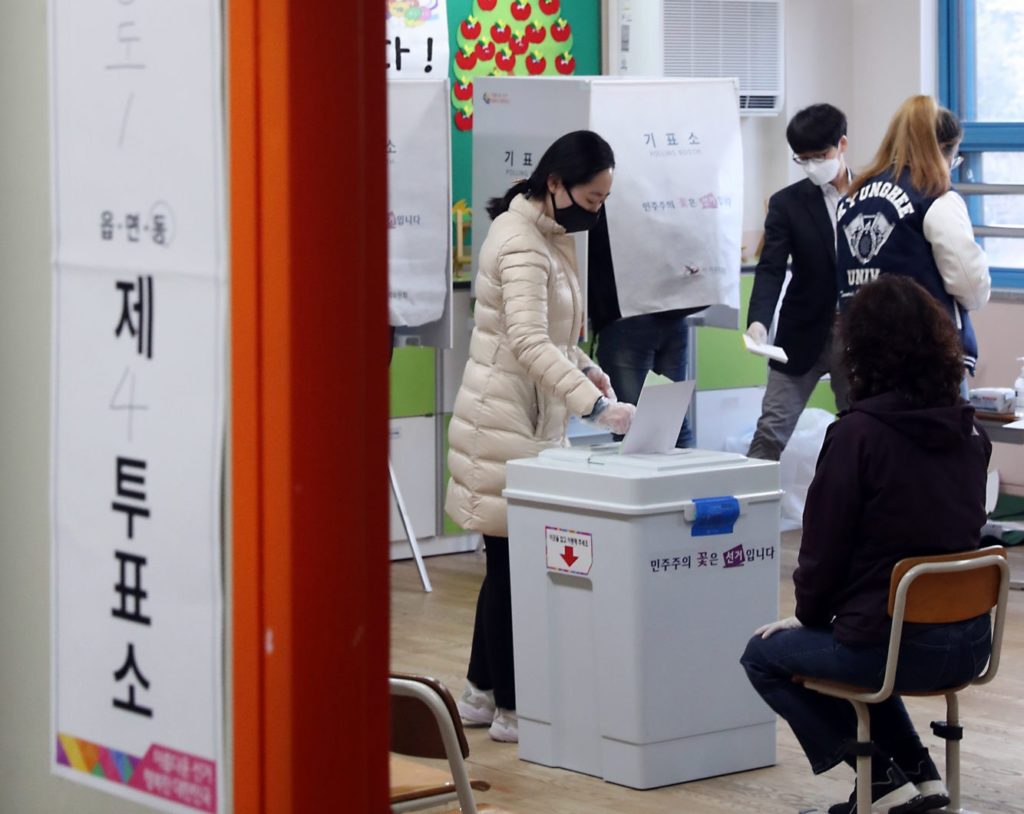We are all seeking the right balance between core values.
According to the Worldometer statistics, coronavirus cases now exceed 4 million worldwide. The death toll is also over 280,000. COVID-19 makes all of us have a tangible understanding of what a global issue is.
People’s opinion might differ on how to address non-proliferation or climate change, as some of us do not consider those issues imminent. However, COVID-19 is different. Its damage was immediate, indiscriminate and catastrophic. As the curve is gradually flattened, we have the opportunity to look upon possible lessons learned. It is all the more critical as the deadly pandemic is still progressing and many experts warn about a possible second wave.
About two months ago, the Republic of Korea was the second largest victim next to China. From the outset, the Korean government has maintained what we call the “3-T policy” (Test, Trace and Treatment) under the principles of Openness, Transparency and Democracy. In fact, this triad of mass testing, contact tracing and free medical treating for all has proved to be outstandingly effective in deterring the spread of the virus and thus saving lives.
Korea kept its borders open, ensured the freedom of movement for citizens, and informed its citizens in a transparent manner – in accordance with the relevant laws that were amended through democratic debate and consensus in the aftermath of the 2015 MERS crisis in the country. Indeed the Korean society drew lessons from the 2015 sanitary crisis and got better prepared for the worst-case scenario. Therefore, thanks to the effective response of the Korean government, the general election took place last month in Korea with a turnout of 66.2%, the highest since 1992.
In the early stage of COVID-19, Korea’s pre-emptive response along with its rapid development of testing kits drew attention worldwide. Nowadays, the focus seems to be on Korea’s tracing and tracking of personal information in the context of deterring the spread of the corona virus.
Korea’s legal mechanism regarding epidemical investigation is equipped with tools to protect personal information. First, we collect necessary information largely via interview. Mobile phone location data, CCTV recording and credit card transaction can be further traced only if the epidemic investigators judge it necessary.
Second, collected information is only used for epidemical purposes and destroyed once the investigation is completed. The law regulates each step and any government official who breaks the law is severely punished. Third, the information made public is anonymized so the person it belongs to cannot be identified. This corresponds to the same rationale as the one for Europe’s Bluetooth-based social tracing app.
Korea is in the global leading group in the field of personal data protection. The IAPP, the largest information privacy association in the world, recognized that Korea’s Personal Information Protection Act (PIPA) is “one of the world’s strictest privacy regimes” (http://iapp.org/news/a/gdpr-matchup-south-koreas-personal-information-protection-act).
Last January, the National Assembly of the Republic of Korea reinforced the PIPA even further by strengthening the independency of the data protection authority (Personal Information Protection Commission, PIPC). Against this backdrop, the Korean government and the European Commission are at the final stage of talks on a GDPR adequacy decision on Korea that will judge whether Korea’s level of data protection is equivalent to that of the EU.
Not long ago, Koreans made huge sacrifices to win a full-fledged democracy by resisting excessive control of civic rights by the government and institutionalizing democratic control over the government.
Privacy constitutes an essential part of civil rights in Korea. Therefore, we remain extremely vigilant against a possible abuse and pay special attention to controversies on this issue. Both privacy and public health are values that we cannot give in. In the face of the unprecedented global crisis, each society is steering its own way, with its historic and cultural context, and exploring the best possible ways forward.
At this stage, no society can proudly say that they attained the optimal policy that everyone agrees upon. Europe is also compelled to seek a balance between conflicting values. European citizens are accepting restrictions on freedom of movement and lockdowns at the sacrifice of their civil rights.
The Korean model is neither optimal nor a perfect reference that every country needs to emulate. Also it may not be applicable in other countries with less IT infrastructure and other values. However, it is fair to say that Korea’s approach has proved to be a powerful tool to strike a right balance between conflicting needs. After a long and heated national debate, we just reached a social consensus and have yet to meet all different demands.
In times of crisis, open mindedness would be more beneficial than isolated pride and prejudice. We are all fighting against an unknown enemy. We have come to know that more than half of all the infections happened before any symptoms of COVID-19 have appeared.
The initial scepticism over wearing a face mask resulted in giving the deadly virus more room to run rampant. If we paraphrase the famous Jane Austen’s quote, Prejudice disabled us from creating synergy with others, and Pride shuns other benefits away from us. Korea is ready to learn from others and share its own lessons learned in the process of overcoming COVID-19. I hope and believe that the post-COVID-19 world would be more self-reflective, open-minded, and motivated for a stronger solidarity in our global community.


